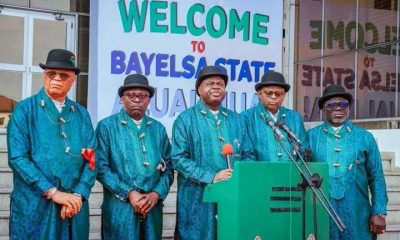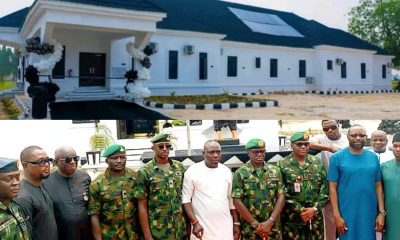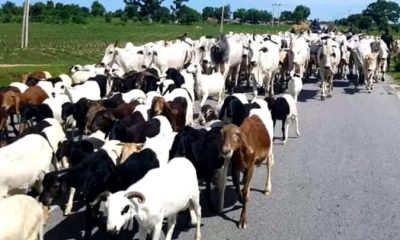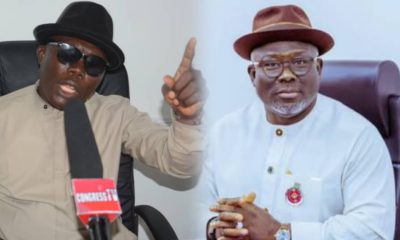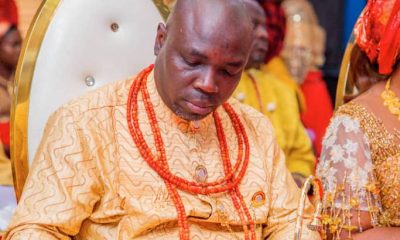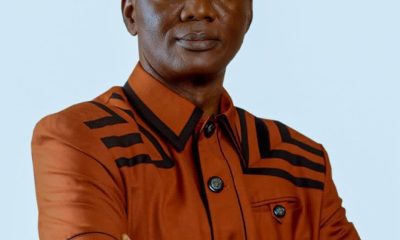National
Lives Saved, Futures Secured: The Story of Henry Seriake Dickson’s Health Revolution
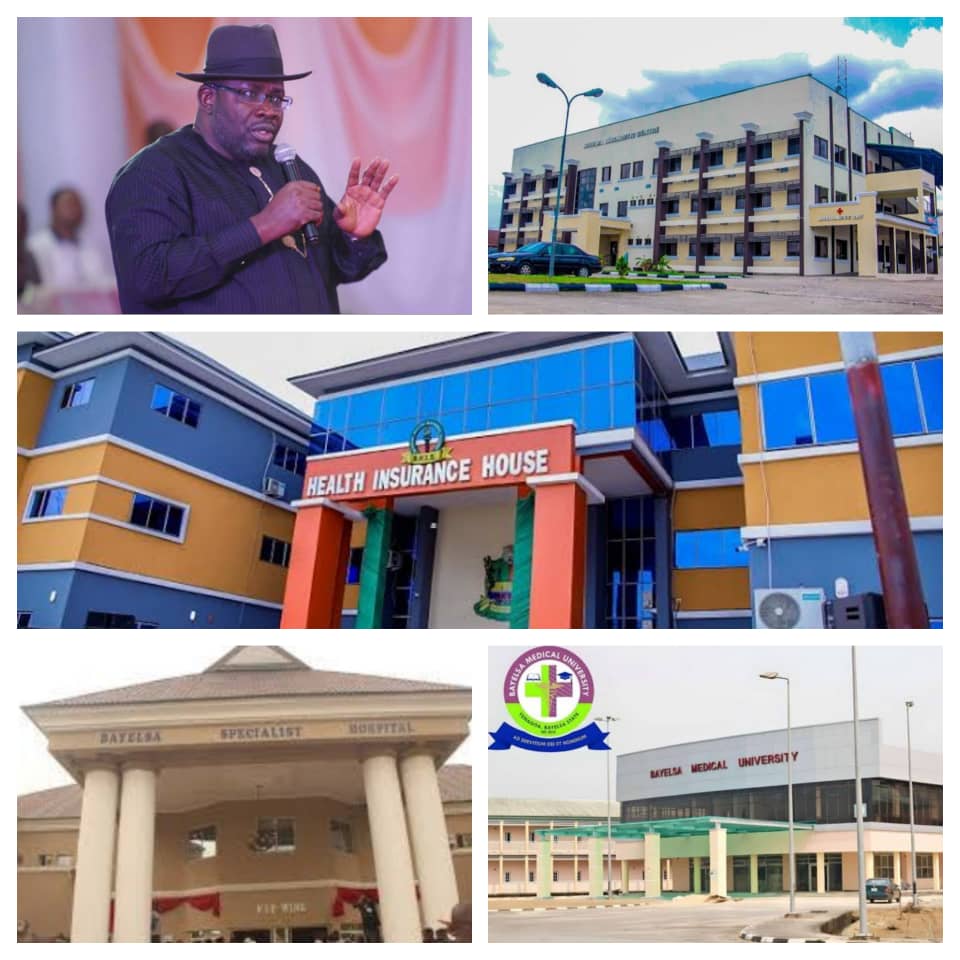
From Building Hospitals, Diagnostic Centres, First Bayelsa Forensic Centre, Bayelsa’s First Real Health Insurance System, First Private Teaching Hospital to Founding a Medical University and Sustaining Community Interventions, Dickson’s Journey Shows How One Leader’s Vision Can Save Lives, Train New Healers, and Inspire a Healthier Future for Nigeria.
By Preye V. Tambou
31st August, 2026
When great leaders are remembered, it is rarely for the offices they held, but for the lives they touched. In the history of Bayelsa and indeed Nigeria, Henry Seriake Dickson will be remembered as the leader who chose health over politics, people over profit, and institutions over personal gain, for building a quiet but enduring health revolution that gave poor families dignity, gave young doctors a future, and an oil-rich but vulnerable Niger Delta State the tools to protect its people. His years in office planted health foundations that today continue to save lives, employ thousands, and inspire other States to think bigger.
Dickson’s story is not frozen in time. Even today, his vision continues to influence health policy, environmental justice, and youth empowerment across Nigeria. His legacy is alive, not in stone, but in the beating hearts of mothers, children, and families who live because he cared. Perhaps even more remarkable is this: his contribution did not end when he left Government House. Today, as a Senator and elder statesman, Dickson continues to shape Nigeria’s health sector, proving that leadership is not a title but a lifelong calling.
Building Lifelines, Not Monuments
From his earliest days in office, Dickson understood that the wealth of a State means nothing if its people are sick and dying. He embarked on one of the boldest State-level health reform agendas in Nigeria’s history.
In 2012, Bayelsa’s hospitals were struggling, fake drugs were killing more than they healed, and poor families faced the cruel choice between food and treatment. Dickson could have chosen easier political projects instead, he decided that every Bayelsan deserved access to safe, affordable, and reliable healthcare.
He established the Bayelsa Diagnostic Centre in Yenagoa, so that mothers, children, and the elderly would not have to travel to Port Harcourt or Lagos just to get a scan and test.
Today, Bayelsa Diagnostic Centre is regarded as one of the best in Nigeria, affiliated with leading clinics in Europe and America. Beyond ordinary scans, it boasts a Kidney Unit and Surgical Wing where people from across Nigeria come for specialized treatment. It remains a beacon of modern medicine in the Niger Delta.
After six years of leaving Government House, Dickson has continued to prove that leadership is not about titles, but about impact. He built the first Forensic Centre within the Diagnostic Centre, a facility that enhances justice delivery and strengthens security systems.
Dickson built Government Specialist Hospital (over 100 beds), to international executive standards, not just for government officials but open to the general public, this facility raised the bar for secondary healthcare in the State.
He built General Hospitals across the LGAs, each with about 80 beds, well equipped, and furnished, they were commissioned and put to use at a time Nigeria’s economy was reeling from recession. Against the odds, Bayelsa achieved what many richer States could not.
He built Primary Healthcare Board & Centres in Every Ward. By law, Dickson established the Bayelsa Primary Healthcare Board, built over 80 functioning Primary Health Centres, and had a vision to cover all 105 wards. This brought healthcare closer to remote riverine communities where once only sickness and death reigned.
He built Bayelsa Drug Mart (Drug Distribution Centre), shielding patients from counterfeit medicines, a scourge that kills silently across Nigeria. A bold fight against fake drugs. This centre became the hub for safe, regulated medicines in Bayelsa. It did not just secure drug safety; it created jobs for doctors, nurses, and pharmacists.
He also built the School of Nursing and Midwifery and gave support for the School of Health Technology, Ogbia. By strengthening training institutions, he ensured a pipeline of qualified health professionals for the future.
He founded the Bayelsa Medical University, creating a pipeline of homegrown doctors, pharmacists, and nurses who today serve not just Bayelsa, but Nigeria at large.
He has been delivering free monthly medical treatment for women at the Medical Centre, investing over ₦5 million each month to sustain this life-saving initiative.
Beyond that, he is currently building the first Private Teaching Hospital in the State, sited within Hensard University, Toru-Orua, the first and only private university in Bayelsa.
Through Hensard University, University of Africa, and more other established institutions, Dickson has also opened doors of opportunity for young people, offering free scholarships to those eager to pursue higher education. In doing so, he is not only raising a new generation of professionals but also sowing seeds of knowledge, innovation, and empowerment for Bayelsa’s future.
Dickson’s enduring contributions remind us that service to the people does not end when political office ends. His legacy is one of vision, courage, and a firm belief that education and health are the true foundations of progress.
These were not glamorous monuments, they were lifelines.
Financing Health With Integrity
Many health schemes in Nigeria exist only on paper. Dickson went further.
Bayelsa passed its health insurance law in 2013, then reorganized and fully rolled it out under Dickson’s watch, inaugurating a new board and operational push in 2017. That activation turned a paper scheme into real coverage for civil servants, the vulnerable, and enrollees across public and private providers. Today, the Bayelsa Health Insurance Scheme (BHIS) remains the State’s main vehicle for pooling funds and expanding access, repeatedly cited in current reporting and academic work as central to Bayelsa’s UHC pathway.
He activated and funded the Bayelsa Health Insurance Scheme (BHIS), which remains one of Nigeria’s most robust in terms of infrastructure and reach. Unlike some leaders who use such funds for personal enrichment, Dickson never took financial benefit from it. The activation BHIS, ensures thousands of families could see a doctor without fear of ruinous bills.
He made an extraordinary decision: to dedicate 5% of Bayelsa’s Internally Generated Revenue (IGR) every month to the scheme. By the time he handed over in 2020, the fund had accumulated over ₦4 billion, which he transparently passed on to his successor; a rare act of governance integrity in Nigeria.
This single act created financial stability for the health system and gave Bayelsans dignity: healthcare without catastrophic bills.
Why this matters nationally: with fewer than 1 in 10 Nigerians covered by any health insurance as recently as 2024, State schemes that move from law to live enrolment are the practical frontier of reform.
Fighting Infant Mortality With Compassion
Perhaps Dickson’s most touching intervention was his Infant and Maternal Mortality Programme.
Every pregnant woman in Bayelsa received ₦5,000 monthly for 13 months, covering pregnancy and the first year of the child’s life. This was not just social welfare, it was a lifesaving policy.
By the time he left office, Bayelsa had reduced one of the highest infant mortality rates in the country to one of the lowest. Behind those statistics are thousands of living children; saved souls who might have died, and mothers who now watch them grow.
Directing Projects for People, Not Profit
Dickson insisted that all projects in the health sector were not to be treated as revenue machines but as people-centred investments.
He told contractors and officials alike: “This is not for money. This is for lives.”
This philosophy is why his projects endure. They were not designed to be milked dry but to serve Bayelsans and create employment for young doctors, nurses, and technicians.
Beyond Office: A Leader Who Still Heals, Legacy That Lives On
Unlike many who stop at ribbon-cutting, Dickson has continued to champion health, to be a guardian of public health after leaving office. Today, his interventions span policy, philanthropy, education, environment, and empowerment:
At the National Stage: As a Senator, Dickson has been a loud voice for increased health financing, improved environmental health policies, and the fight against oil pollution which poisons rivers, contaminates water, air, sickens children and ultimately human lives in the Niger Delta. He frames environmental degradation not just as an ecological issue, but as a public health emergency, making the fight for clean environments a fight for better health.
Training and Employment: Through the continuous growth of Bayelsa Medical University and scholarships under his foundation (HSDF), he has created training grounds for thousands of youths, turning unemployed young people into doctors, nurses, lab scientists, and health technicians. Every graduate is not just a job seeker, but a potential life-saver.
Saved Souls, Healthier Lives: From sponsoring health outreaches in rural communities to pushing for stronger Federal support for State Insurance Schemes, Dickson’s present efforts translate into lives saved daily; malaria cases treated early, maternal deaths prevented, and chronic diseases detected before it is too late.
Environmental Justice as Health Justice: By insisting on corporate accountability for oil spills and gas flaring, he connects the dots between clean rivers and healthier children, between safe air and longer lives. His advocacy ensures that communities are not condemned to slow death by pollution.
His philanthropic gestures, advocacy, and policy work ensure that his legacy is not a past event but a living, breathing force in Nigeria’s health sector.
The Ripple Effect: How a Legacy Becomes a Future
The beauty of Dickson’s health legacy is that it is self-perpetuating. Hospitals can decay, but institutions outlive their founders. Today:
The Bayelsa Health Insurance Scheme continues to shield thousands from crushing medical debt.
The Diagnostic Centre still delivers tests that prevent misdiagnosis.
The Drug Centre still supplies safer medicines.
The Medical University still trains the next wave of health heroes.
Beyond Bayelsa, his model has inspired other States to invest in insurance, training, and safe medicine supply chains. Nigeria’s march to universal health coverage will not be won in Abuja alone but also in States that follow Bayelsa’s path.
A Challenge to Leaders: Choose Lives Over Politics
What Dickson’s journey teaches is simple: Leadership that invests in health is leadership that saves souls long after the titles fade.
Every doctor who graduates from Bayelsa Medical University (BMU), nurse who finds employment, child who gets treated without their family selling property; these are not statistics. They are living monuments more enduring than any skyscraper and flyover.
In an era where leaders often chase the visible and short-term, Dickson chose the invisible victories; lives extended, futures preserved, and communities empowered.
The Healer of Bayelsa, The Teacher of Nigeria
Henry Seriake Dickson’s health legacy is not a single hospital building. It is a matrix: an insurance scheme that pools risk, a drug system that prioritizes safety, diagnostics that shorten the path to accurate care, and a university that seeds tomorrow’s clinicians. These are the often-invisible structures that make maternal wards safer, hypertension care routine instead of ruinous, and cancer diagnoses faster and more accurate.
Dickson’s health revolution is not measured in buildings alone. It is measured in souls saved, mothers comforted, children raised, youths employed, and futures secured.
His health revolution is not finished, it is ongoing, evolving, and inspiring. From Bayelsa’s creeks to Nigeria’s Senate chambers, he has proven that true legacy is measured not in years of tenure, but in years of life added to the people; true leadership is not about what you take, but what you give; not about how long you rule, but how many lives you touch.
His work reminds us that the path to Nigeria’s rebirth will not begin in the loudness of politics, but in the quiet wards where babies are born safely, classrooms where nurses learn their craft, rivers where clean water flows again, and homes where families sleep at night without fear of a medical bill.
His example is a challenge to Nigeria’s leaders: if you want to be remembered, invest in health. If you want your name to live, let your policies give life. Roads may crumble, buildings may fade, but a healthy people live on to tell your story.
In the annals of Nigerian leadership, and for Bayelsa one truth will remain: Henry Seriake Dickson has already saved more lives than history can count and the torch he lit still burns. He did not just govern Bayelsa. He healed it.

